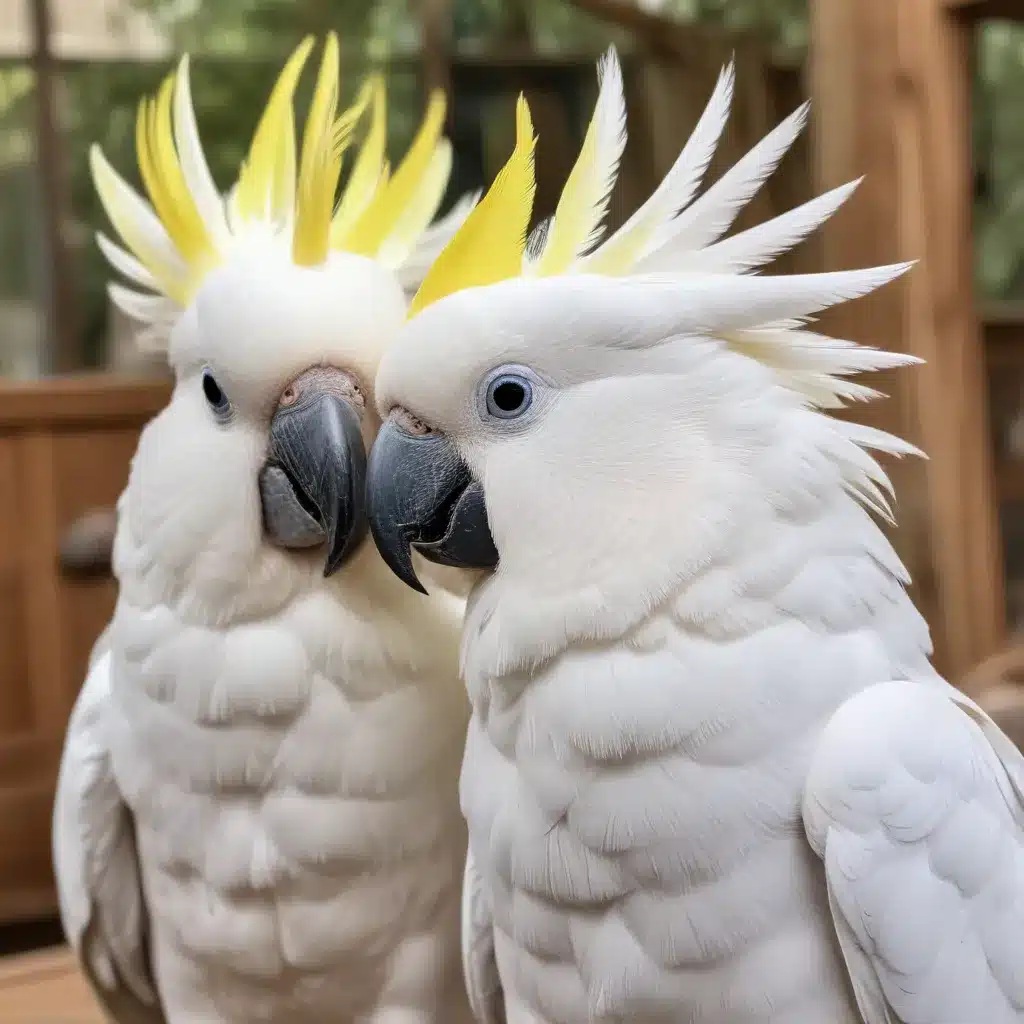
Cockatoo Characteristics
Cockatoos are a distinct group of parrots known for their striking crests, affectionate personalities, and endearing antics. As one of the most popular exotic pets, these intelligent and charismatic birds have captured the hearts of many avian enthusiasts. To successfully bond with a cockatoo, it’s essential to understand their unique physical and behavioral traits.
Cockatoo Anatomy
Cockatoos are characterized by their distinctive crests, which they can raise and lower to express their emotions. Their robust beaks are designed for cracking nuts and seeds, while their strong, zygodactyl feet allow them to grasp and manipulate objects with dexterity. Cockatoos also have a unique respiratory system, with a large, air-sac-filled body cavity that contributes to their loud, piercing vocalizations.
Cockatoo Behavior
Cockatoos are highly social and intelligent birds, often forming strong bonds with their human caregivers. They are known for their playful and affectionate nature, engaging in activities such as chewing, playing with toys, and cuddling. However, cockatoos can also be prone to bouts of screaming, feather-plucking, and aggressive behaviors, especially if their environmental and social needs are not met.
Cockatoo Socialization
Cockatoos are flock animals and thrive on regular interaction and attention from their owners. They require a significant time commitment, as they can become anxious and destructive when left alone for extended periods. Proper socialization and positive reinforcement training are crucial for developing a trusting and mutually rewarding relationship with your cockatoo.
Cockatoo Care
Providing a safe, enriching, and species-appropriate environment is essential for the health and well-being of your cockatoo. Understanding the intricacies of their dietary, housing, and healthcare needs will set the foundation for a successful and long-lasting bond.
Diet and Nutrition
Cockatoos are primarily seed and nut eaters in the wild, but a balanced, varied diet is crucial for their captive care. A high-quality pelleted or formulated diet should make up the bulk of their food intake, supplemented with fresh fruits, vegetables, and the occasional treat. Ensuring your cockatoo receives the proper nutrients is not only essential for their physical health but can also impact their behavior and overall well-being.
Environmental Requirements
Cockatoos require spacious, multi-level enclosures with ample opportunities for climbing, perching, and exploration. Providing a variety of natural and enriching elements, such as perches of different sizes and textures, chew toys, and foraging opportunities, can help prevent boredom and encourage natural behaviors. Maintaining a consistent, stress-free environment is key to fostering a strong bond with your cockatoo.
Health and Wellness
Regular veterinary check-ups, preventive care, and prompt attention to any health issues are crucial for the well-being of your cockatoo. Being attuned to your bird’s physical and behavioral cues can help you identify potential problems early on and ensure your cockatoo remains in peak condition. Addressing any underlying health or environmental concerns can also contribute to a more positive and trusting relationship.
Cockatoo Training
Positive reinforcement training is the foundation for building a strong bond with your cockatoo. By focusing on rewarding desirable behaviors and gradually shaping new skills, you can foster a cooperative and mutually beneficial relationship.
Positive Reinforcement
The key to successful cockatoo training is to use positive reinforcement, such as offering preferred treats or engaging in favorite activities, to encourage and reward the behaviors you want to see. This approach helps create a calm, trusting environment where your cockatoo feels safe and motivated to engage with you.
Desensitization Techniques
If your cockatoo has had negative experiences in the past, it’s important to use desensitization techniques to gradually re-establish trust and confidence. This may involve slowly introducing new stimuli or situations while providing positive reinforcement, allowing your bird to become comfortable at their own pace.
Targeted Behaviors
Training your cockatoo to perform specific behaviors, such as stepping up, stepping onto a scale, or accepting handling, can significantly improve your ability to provide proper care and medical attention. By teaching these targeted behaviors through positive reinforcement, you can build a foundation of trust and cooperation.
Bonding with Cockatoos
Establishing a strong bond with your cockatoo requires patience, consistency, and a deep understanding of their unique needs and preferences. By creating a safe, enriching environment and engaging in positive interactions, you can foster a mutually rewarding relationship.
Establishing Trust
Trust is the cornerstone of any successful bond with a cockatoo. Avoid sudden movements, loud noises, or any actions that may startle or frighten your bird. Instead, take the time to sit quietly near their enclosure, offer preferred treats, and allow your cockatoo to approach you at their own pace. Gradual exposure and positive reinforcement will help your bird learn to trust and feel comfortable in your presence.
Effective Communication
Cockatoos are highly perceptive and attuned to their caregiver’s body language and tone of voice. By learning to read and respond to your cockatoo’s own cues, you can develop a more nuanced and effective form of communication. Pay attention to your bird’s crest position, vocalization patterns, and overall body language to better understand their emotional state and tailor your interactions accordingly.
Shared Activities
Engaging in shared activities with your cockatoo is a powerful way to strengthen your bond. Offer a variety of enrichment toys and puzzles, encourage foraging and exploration, and set aside dedicated one-on-one time for gentle petting, cuddling, and training sessions. By participating in these mutually enjoyable activities, you can foster a deeper connection and sense of trust with your feathered companion.
Building a strong bond with a cockatoo requires patience, consistency, and a deep understanding of their unique needs and behaviors. By providing a safe, enriching environment, using positive reinforcement training, and engaging in shared activities, you can establish a trusting and mutually rewarding relationship with your cockatoo. Remember, every bird is an individual, so be prepared to tailor your approach to their unique personality and preferences. With time and dedication, you can cultivate a bond that will enrich both your lives. For more information on cockatoo care and training, be sure to visit the Mika Birds Farm blog at https://mikabirdsfarm.com/.


